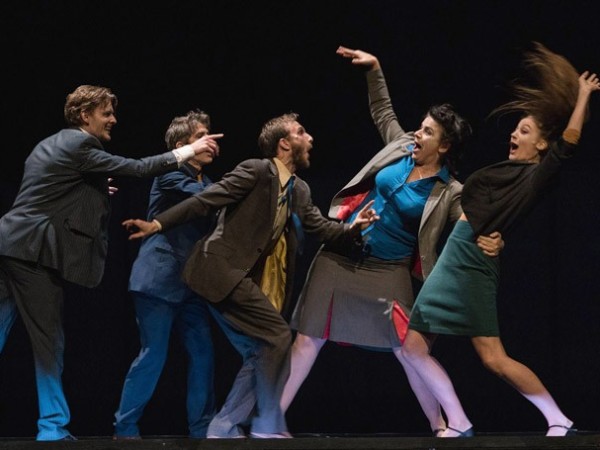Featured Post
Devising Theatre
Devising Theatre is daunting. It seems a huge amount to ask of a young person, just 15 years old, to devise a deep and meaningful performance full of rich language, visual metaphors or complex plot lines. Here are five top tips to give to students making that step up in maturity, to help them devise more challenging, interesting and engaging devising theatre.

Prompts, tips and ideas for writing student duologues
Writing duologues can be really daunting. So much information that you want to communicate to an audience but so little time. These excellent tips and scenario ideas will help your students create amazing, engaging and emotional duologues.
Continue reading Prompts, tips and ideas for writing student duologues

Monologues and how to make them!
A playlist of useful videos from YouTube, a mixture of great examples of student monologues and advice from others in the profession to help make your monologues fantastic.

Five top tips for Devising Theatre
Devising Theatre is daunting and when I was a Drama student I found it one of the most difficult elements of the course. As an adult theatre practitioner, it is something I rarely do. I do a lot of script work, I’ve worked in professional and amateur theatres with scripts. With that we might devise… Continue reading Five top tips for Devising Theatre

How improvisation can help students to understand the structure of a performance.
Improvisation has got to be one of the most universal, accessible and immediate rehearsal and drama tool in the box. But how can you use improvisation to help students understand the structure a performance?
Continue reading How improvisation can help students to understand the structure of a performance.

Theatre In Education Links
A fantastic place to start researching and finding out about Theatre In Education. Full of interesting and engaging links that will take you help you find out about this exciting genre of theatre.

Physical Theatre (Genre) Links
“Physical theatre is a genre of theatrical performance that pursues storytelling through primarily physical means. Several performance traditions all describe themselves as “physical theatre”, but the unifying aspect is a reliance on physical motion of the performers rather than or combined with text to convey the story. In basic sense, you talk through hand gestures, body language, thought… Continue reading Physical Theatre (Genre) Links

Brecht and Epic Theatre Links
Eugen Bertolt Friedrich Brecht (10 February 1898 – 14 August 1956) was a German poet, playwright, and theatre director of the 20th century. He made contributions to dramaturgy and theatrical production, the latter through the tours undertaken by the Berliner Ensemble – the post-war theatre company operated by Brecht and his wife, long-time collaborator and actress Helene Weigel. (Wikipedia) Overview of Brecht The BBC Bitesize website has… Continue reading Brecht and Epic Theatre Links

Verbatim Theatre Links
“Verbatim theatre is a form of documentary theatre in which plays are constructed from the precise words spoken by people interviewed about a particular event or topic.” (Wikipedia) What is Verbatim Theatre? The National Theatre, UK, guide to making Verbatim Theatre. An essay by Theatre Ciritc Micheal Billingham for The Gaurdian about Verbatim Theatre. Another… Continue reading Verbatim Theatre Links

Burts Drama Generator (Mini)
As the students enter the room, give each student one of two different colour post it notes. Once inside the room, instruct the first colour to write down simply locations (Tesco, Home etc…) and on the other colour write down crisis’s (fire alarm, monkey escapes etc…). Use the first six of each and leave the… Continue reading Burts Drama Generator (Mini)

ICER Resources
I’ve just uploaded onto TES some resources for ICER. ICER is an acronym for Ideas, Create, Evaluate and Rehearse and acts as a way of structuring the lesson and the way in which students create drama. It allows for early intervention with groups you aren’t working well and it maintains a fast but healthy pace to… Continue reading ICER Resources

ICER: A model for making Drama
ICER is an acronym that I’ve been using with my Key Stage 3 students for some time now and as I’m working with Key Stage 3 again next year it is time to get it back out of the cupboard! It is a simple but effective method of keeping the lesson focused, with a good… Continue reading ICER: A model for making Drama

8 way to help you learn your lines!
Produced an advice sheet a few months ago for my students about how to learning lines. Despite it’s bluntness, it has proved to be very useful. This has been added to a reward and sanction system, where by if a student uses their script after a certain point for a certain scene, or later on… Continue reading 8 way to help you learn your lines!
Loading…
Something went wrong. Please refresh the page and/or try again.
Can’t find what you’re looking for? Use the search form to search the site.
Get new content delivered directly to your inbox.

